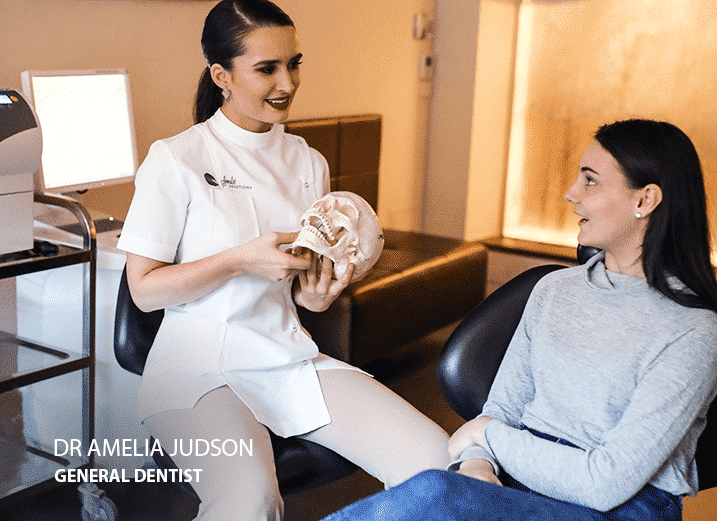Complex bite problems may require jaw surgery in conjuction with orthodontic treatment.

What does the surgery involve?
Pre-surgical orthodontics

It may take from six to 18 months to prepare a patient for your jaw surgery, depending on their needs. First, we will fit braces to your teeth to begin aligning them so your bite is correct when the surgery is complete. During surgery, pins will be threaded through a slot in these braces to help the surgeon secure your teeth during the surgery.
During orthodontic treatment, impressions will be taken to check the progress of the orthodontic alignment. Once we are satisfied that your pre-surgical goals have been reached, we will fit an arch wire that is strong enough for surgery and then make an appointment for your procedure.

The surgical procedure
Orthognathic surgery can:

Move the lower jaw forward or backwards to shorten or lengthen it.
Maneuver the upper jaw in various directions.
Adjust the chin either forward, backwards, upwards to shorten it or downwards to lengthen it.
Surgery is performed behind the back teeth, not in the joint, and the jaw is sectioned. This approach is taken for three reasons: so that no gaps are left in the bone, so that it is not necessary to wire your teeth during the healing phase and so that you can open your mouth after surgery.
Incisions about 1 centimetre long are made on the inside of your mouth for access during the surgical procedure. As a result, there is no external scarring. These incisions are typically located in the folds of tissue and are not usually visible after your surgery. The sutures used on the incisions either dissolve or are removed after five to seven days.
Some procedures may be done on an outpatient basis, while others are conducted in hospital. If the procedure is to take place in hospital, you will generally be admitted on the morning of your scheduled surgery. The length of your hospital stay will also vary according to your procedure. One of our oral & maxillofacial surgeons will discuss all of these details with you well in advance.
Frequently Asked Questions
The level of pain experienced after jaw surgery varies from individual to individual. Some patients describe it as more like a “soreness” but most patients call it “discomfort”.
Generally speaking, Dr Patrishia Bordbar or Dr Ricky Kumar will schedule a review appointment a week after surgery to monitor your recovery. After that you will need orthodontic treatment for about 6 to 12 months. Over this period, and especially immediately after surgery, oral hygiene becomes more important than ever. If you do not keep your mouth clean after your surgical procedure, you greatly increase the risk of infection.
You can expect some swelling. This is often greater on the second or third day after surgery and then tends to decrease. Swelling is generally only noticeable for up to six weeks.
Discomfort generally lasts two to three weeks. It is more noticeable in the first few days after your surgery, but you will feel an improvement every day. Your surgeon may prescribe some medication to help alleviate your discomfort.
Immediately after surgery your diet is limited to soft foods to aid the tissue healing process, but the options may not be as limited as you think. Also, because the muscles in your mouth will be weakened and your new bite will feel different, you may have difficulty chewing. Foods such as breads and most meats will be difficult to eat. However, you should be able to eat most foods around four weeks after surgery.
You should expect some soreness in lengthy conversations; however, the more you talk, the more you exercise your weakened muscles and hence speed recovery.
